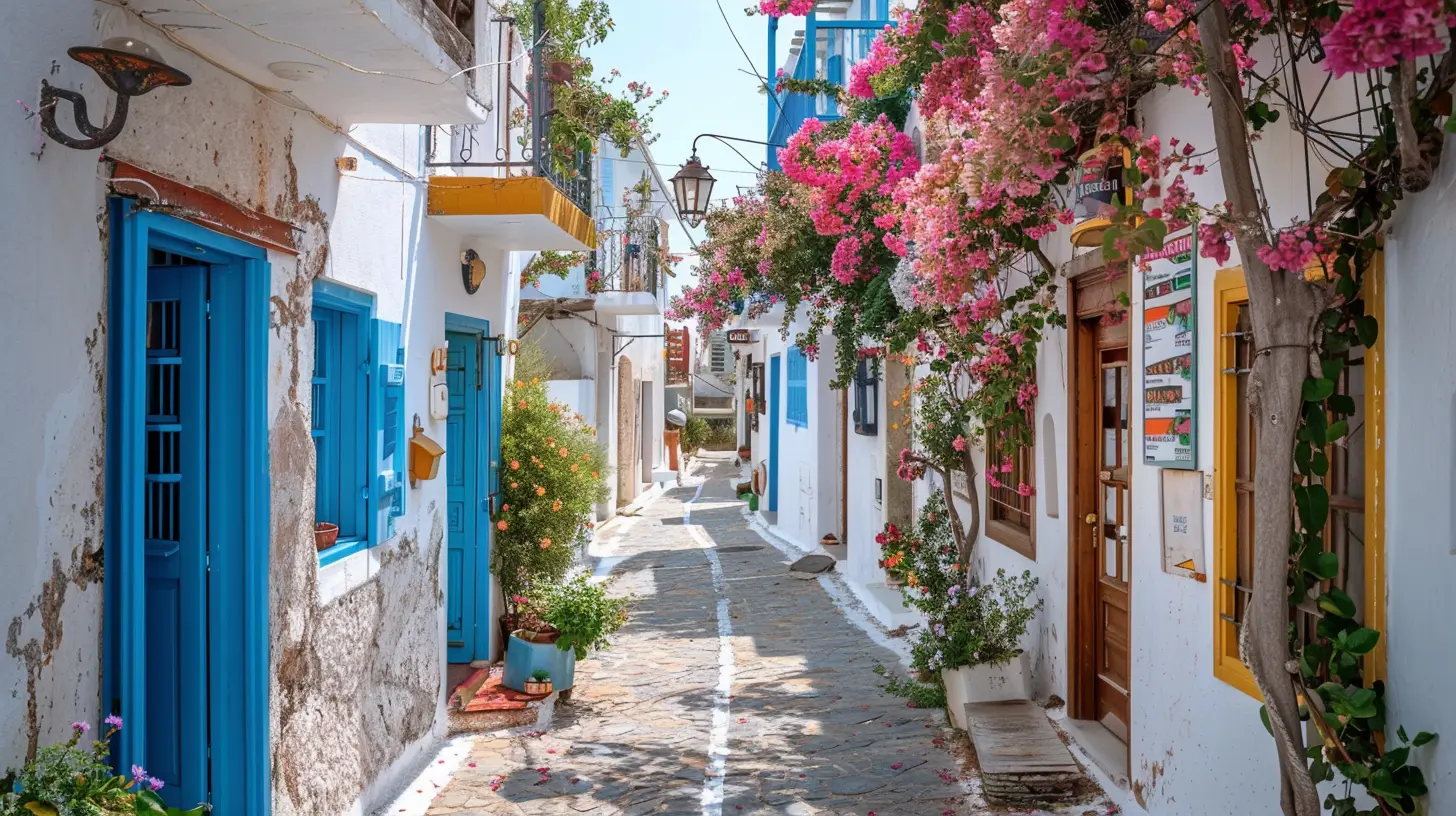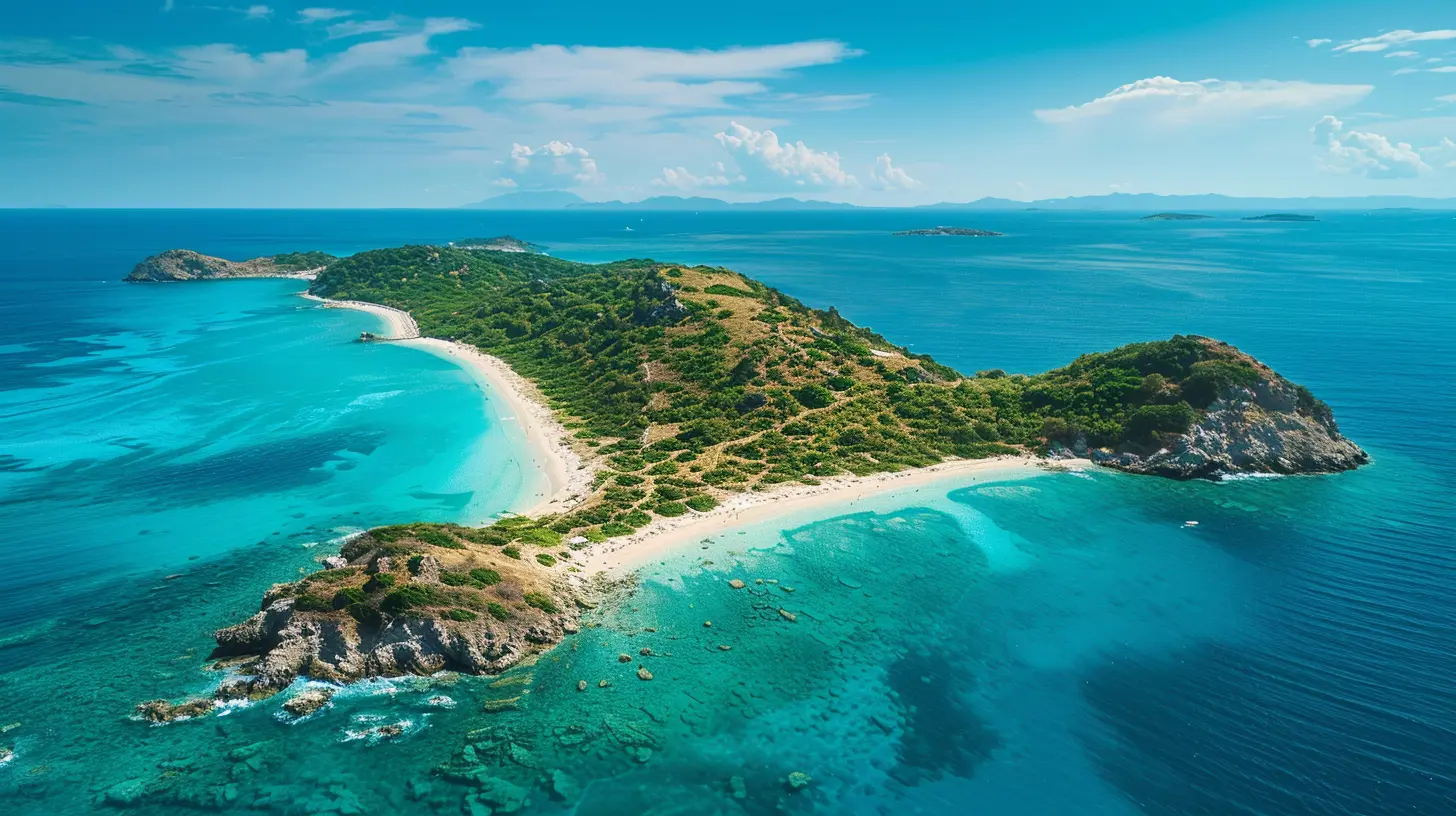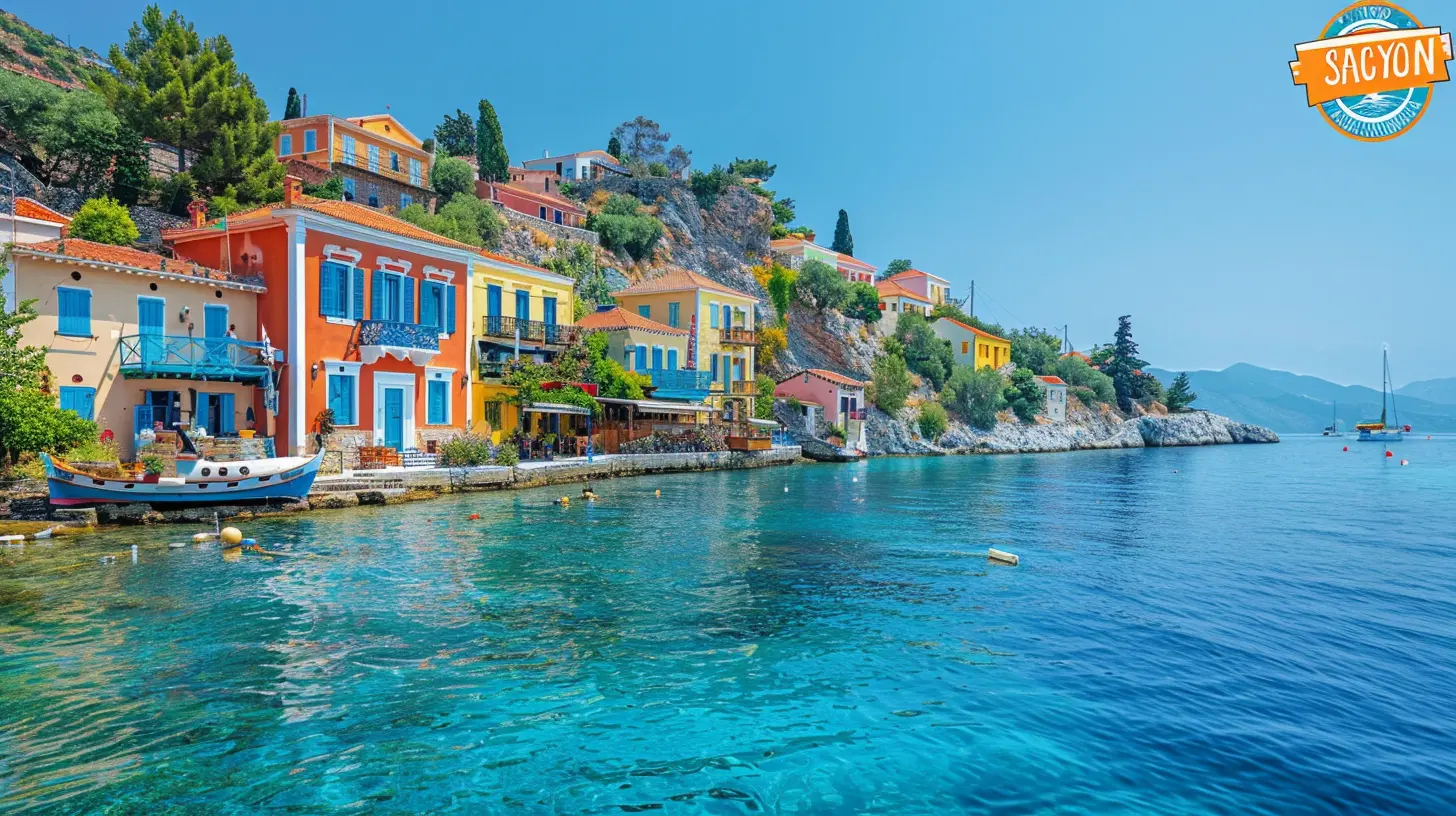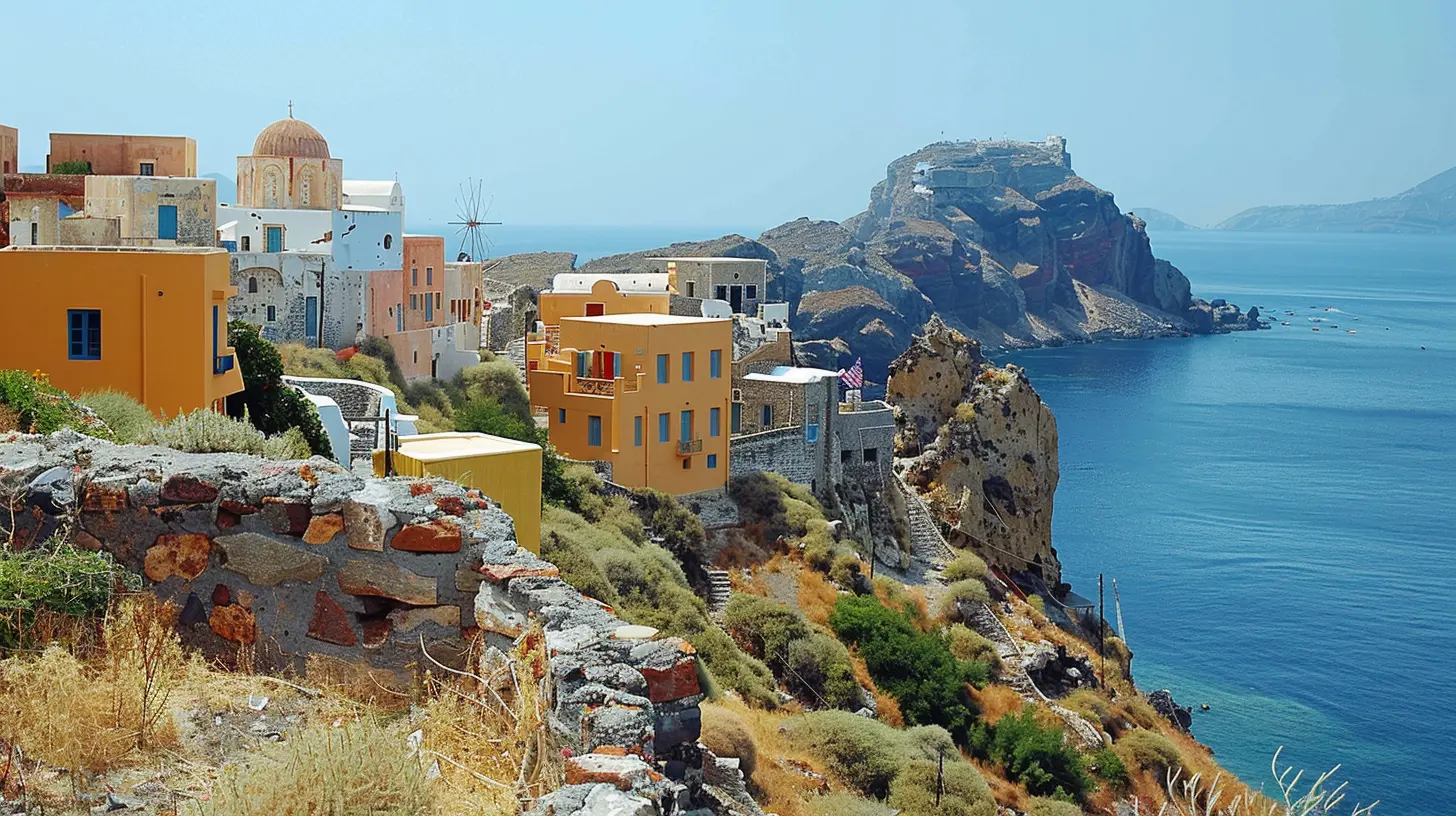When to Enjoy Greece’s Islands Without the Summer Rush
24 May 2025
Greece’s islands are a dream destination for many travelers. Think whitewashed houses, turquoise waters, golden beaches, and delicious seafood. But let’s be honest—the summer months (June to August) bring massive crowds, skyrocketing prices, and temperatures that can make sightseeing exhausting.
So, when’s the best time to visit Greece’s islands without the summer madness? Let’s dive into the perfect seasons that offer pleasant weather, fewer tourists, and a more authentic Greek experience. 
Why Avoid Summer in the Greek Islands?

Overcrowded Streets and Beaches
Popular islands like Santorini, Mykonos, and Crete become packed with tourists in summer. You’ll struggle to find a peaceful spot on the beach or even get a decent table at a restaurant without waiting in line.Higher Prices Everywhere
Flights, ferries, accommodations—everything is expensive in summer. Hotels can triple their rates, and even a simple meal can burn a hole in your wallet.Scorching Heat
Greek summers are no joke. Temperatures often soar above 35°C (95°F), making sightseeing sweaty and uncomfortable. Walking up to Santorini’s caldera or exploring ancient ruins under the blazing sun? Not exactly enjoyable.Luckily, there are better times to visit! 
Best Times to Visit Greece’s Islands Without the Summer Rush
1. Spring (April to Early June) – The Underrated Gem
Spring is one of the best-kept secrets of Greek island travel.Why Visit in Spring?
- Mild Weather: Temperatures range from 18°C to 25°C (64°F to 77°F)—perfect for exploring without breaking a sweat.- Fewer Tourists: The islands are waking up from their winter slumber, but crowds are still minimal.
- Affordable Prices: Hotels and flights are far more budget-friendly than in summer.
Best Activities in Spring
- Island-Hopping Without the Chaos – Ferries are running, but without the summer rush, you’ll have a breezy experience.- Exploring Ancient Ruins – Whether it’s the Minoan palace of Knossos in Crete or the Temple of Apollo in Naxos, spring offers enjoyable weather for sightseeing.
- Nature at Its Best – The landscapes are lush and green, covered in wildflowers. A perfect time for hiking and photography.
Top Islands to Visit in Spring
- Santorini – Fewer tourists mean you can actually enjoy the famous sunset without fighting for a spot.- Rhodes – The medieval streets of Rhodes Town are charming, and the weather is just right.
- Corfu – Known for its Venetian-influenced architecture and gorgeous beaches, Corfu in spring feels like a hidden paradise.
2. Early Autumn (September to Mid-October) – The Sweet Spot
If you want to experience the Greek islands when the sea is warm but the crowds have thinned, early autumn is your golden ticket.Why Visit in Early Autumn?
- Perfect Swimming Conditions: The sea has been warmed by the summer sun, making it an absolute treat for swimming.- Less Crowded Yet Lively: Restaurants and tavernas are still operating, but without the overwhelming summer tourist hordes.
- Comfortable Temperatures: Ranging from 22°C to 30°C (72°F to 86°F), it’s warm enough to enjoy the beaches but not suffocating.
Best Activities in Early Autumn
- Beach Days Without the Hassle – You’ll have more space to relax and enjoy the crystal-clear waters.- Wine Tasting in Santorini – Harvest season falls in September, making it the perfect time to taste some of Greece’s finest wines.
- Sailing Without the Chaos – With calmer seas and fewer boats, sailing around the Cyclades or Ionian Islands is truly magical.
Top Islands to Visit in Early Autumn
- Mykonos – A quieter yet still lively version of its summer self. Great for relaxed nightlife and stunning beaches.- Crete – September and October are fantastic for hiking the Samaria Gorge and exploring the island’s diverse landscapes.
- Milos – Known for its otherworldly rock formations and hidden beaches, early autumn is the best time to soak in Milos' tranquility.
3. Winter (November to March) – A Different Side of Greece
If you’re after pure solitude and don’t mind skipping the beach days, winter in the Greek islands offers a refreshing alternative.Why Visit in Winter?
- No Crowds, No Stress: You’ll get to experience the islands as locals do.- Dramatically Lower Prices: Hotels, Airbnbs, and even ferry tickets are at their cheapest.
- Mild Winter Weather: While it’s not beach weather, temperatures hover around 10°C to 15°C (50°F to 59°F), which is mild compared to much of Europe.
Best Activities in Winter
- Cultural Immersion – Enjoy a truly local experience, visiting small tavernas, interacting with islanders, and exploring quaint villages.- Photography and Sightseeing – Without tourists blocking every scenic spot, you’ll capture stunning views of Santorini, Mykonos, and more.
- Cycling and Hiking – Some islands, like Naxos and Crete, are great for winter hiking with their beautiful mountainous landscapes.
Top Islands to Visit in Winter
- Crete – Greece’s largest island remains vibrant year-round with plenty of things to do, including visiting archaeological sites and mountain adventures.- Santorini – A totally different, peaceful vibe with breathtaking views minus the summer craze.
- Hydra – Close to Athens and perfect for a quiet getaway with its stone mansions and scenic waterfronts.

Final Thoughts: Choosing the Perfect Time for You
If you want warm weather, swimmable waters, and fewer tourists, early autumn (September-October) is ideal. If you prefer blooming nature, lower prices, and mild weather, spring (April-June) is your best bet. And if you’re after a quiet, local experience, don’t overlook winter (November-March).No matter when you go, Greece’s islands are always magical—you just need to pick the season that suits your travel style best. Happy travels!
all images in this post were generated using AI tools
Category:
Best Time To VisitAuthor:

Claire Franklin
Discussion
rate this article
3 comments
Juliet Wilcox
Escape the crowded beaches! Discover Greece’s islands in the serene shoulder seasons—fewer tourists, stunning landscapes, and authentic local experiences await you. Don’t miss out!
May 30, 2025 at 3:33 PM

Claire Franklin
Thank you! Exploring Greece's islands during the shoulder seasons truly offers a magical escape with tranquil beauty and rich local culture.
Fiona McMillan
This article effectively highlights the charm of Greece's islands beyond the bustling summer months. By exploring the shoulder seasons of spring and early fall, travelers can experience milder weather, fewer crowds, and a more authentic cultural immersion. It's an essential reminder that beauty thrives in tranquility as much as in peak popularity.
May 30, 2025 at 2:30 AM

Claire Franklin
Thank you for your thoughtful comment! I'm glad you appreciated the focus on the tranquil beauty of Greece's islands in the shoulder seasons. It truly offers a unique and enriching experience.
Teagan Mahoney
Visit Greece's islands in late spring or early autumn for mild weather and fewer crowds.
May 27, 2025 at 4:22 AM

Claire Franklin
Absolutely! Late spring and early autumn are perfect for experiencing Greece's islands with pleasant weather and minimal crowds. Enjoy!



